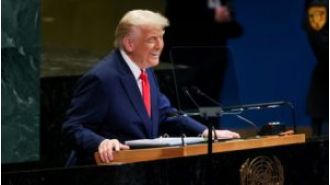Economies of scale and cautionary tales
Leading car manufacturers in the past few decades have been concentrated among manufacturers from a few countries like Germany (Volkswagen et al), Japan (Toyota), and the United States (Ford, General Motors). The biggest challenge any incumbents faces is moving quickly when new technology arrives.
Tesla’s success has been a great example of the incumbents’ failure to respond. In 2023, the Model Y was the best selling car in the world – beating the Toyota Corolla. Tesla reimagined a great driving experience and reaped the results as the undisputed leader in electric vehicles for the past decade.

All this while, we’ve seen the incumbents takes a few steps forward with a few steps back. Call it hubris or a lack of conviction or some mix of both – but they’ve taken their time. So, reading this excerpt in the Exponential View about the progress in China was eye-opening.
China has reduced vehicle costs through economies of scale in manufacturing, allowing prices as low as $10,000 per vehicle. In addition, wages are likely to have increased fivefold since 2008¹. These factors have made vehicles more affordable for China’s middle class. Last year, China registered 8.1 million new EVs. With 120 million factory workers, unlocking domestic demand will create a virtuous cycle of learning and growth for manufacturers.
Chinese cost leadership in EVs is already challenging US and German companies. The Tesla Model 2, cancelled in April, was going to cost $25,000 and the cheapest Volkswagen EV is €36,900 – both well above BYD’s $10,000 Seagull. Tariffs of 100% in the US and potentially of at least 50% in the EU are designed to buy time for incumbent carmakers, but the pressure is on to compete. These companies bear some responsibility for their situation, having defended ICE vehicles rather than embracing the exponential trajectory of battery pricing and EV demand.
The tariffs won’t mean much to China – there are plenty of markets for their cheap vehicles, Brazil, Asia, Africa (and Ethiopia, of course). Even in the UK, I just saw my first BYD in a local neighbourhood in London last week.
The lesson is a cautionary tale of hubris, for Western car makers who doubted the exponential trend sweeping electric vehicles and stepped in too timidly and, possibly, too late.
As fascinating as this case study is, this post isn’t about the car industry.
Instead, it got me reflecting on my own decision making. We all are dealing with versions of this story – in our personal lives, in our career, and in decisions we make at work.
It is so easy to get attached to the status quo – especially when it feels comfortable in the moment. It is best to anticipate the change and move toward it on your own terms rather than get caught reacting to it.
Amateurs react, professionals respond, masters anticipate.






